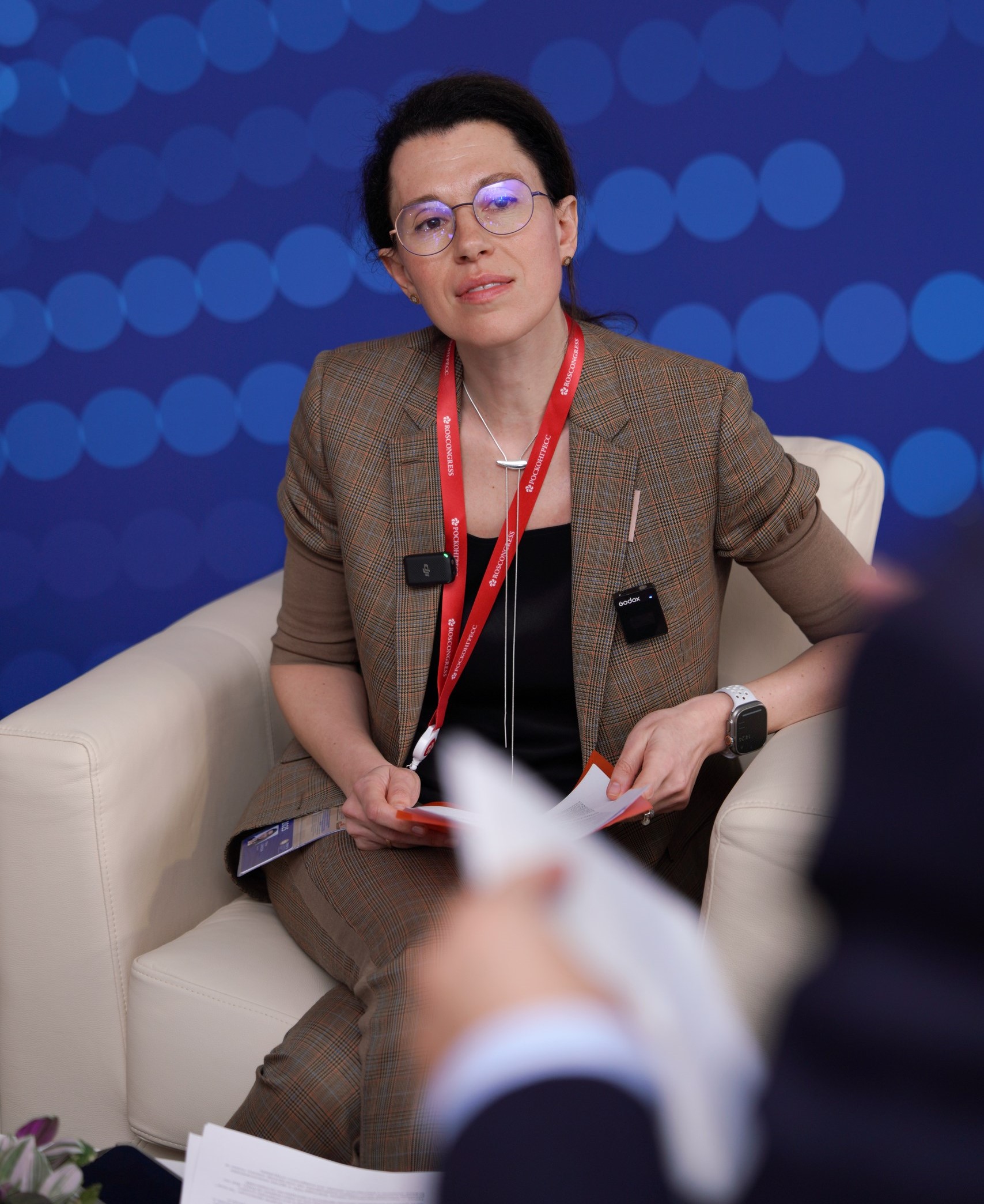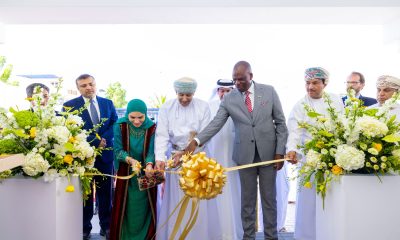Business
Global Business travel patterns are shifting towards Asia and the Middle East says Julia Lipatova, Managing Director, Aeroclub Group

Aeroclub is one of the pioneers and leaders in the business travel industry in Russia. Since 1994, the company has provided a full range of services in organising and managing business trips, automating business TravelTech processes, and organising corporate events worldwide. Aeroclub is a member of the International Air Transport Association (IATA) and an official partner of the global network BCD Travel. Aeroclub employs over 650 professionals and serves more than 2,000 clients. The company’s turnover last year amounted to 63 billion rubles, with a total of 1.4 million transactions annually.
Julia Lipatova Managing Director of Aeroclub Group spoke to OER on the sidelines of St. Petersburg International Economic Forum 2025 organised by Roscongress Foundation. Excerpts from the interview:
How has the business travel market changed in recent years? What key trends can you highlight?
In 2024, the global business travel market was valued at $1.48 trillion. According to the Global Business Travel Association, it’s expected to reach $1.64 trillion in 2025- recording a 10–11% growth. We’re not just seeing recovery but a complete transformation of the industry.
First, Agentic AI is entering the market. Unlike traditional generative AI, it works proactively: predicting needs, planning routes, and optimising budgets. It doesn’t replace travel agents but enhances their work—human agents become AI supervisors, focusing on quality and strategy.
Second, new meeting formats are emerging. Business discussions now happen “on the go” —in trains, planes, and waiting areas. Airlines and rail operators are adapting their infrastructure for this trend, offering business zones and onboard meeting spaces. This is part of a larger shift toward integrating work into travel.
Third, personalised travel packages are growing. Thanks to NDC and other tech solutions, companies can now customize business trips like a modular system—paying only for necessary services and tailoring trips to individual employees.
Fourth, generational shifts are influencing travel. By 2025, Gen Z will make up a quarter of the global workforce, prioritising sustainability, flexibility, and work-life balance. This drives the rise of bleisure trips (business + leisure), updates to travel policies, and increased rail travel for short routes.
Fifth, localisation is accelerating. Domestic business travel is growing faster than international trips. In Russia, the market grew by 27% in 2024, reaching 1.05 trillion rubles. 86% of business trips still happen within the country, and interest in domestic destinations keeps rising.
How has business travel geography changed, and what do clients expect now?
The average length of international business trips in 2025 has increased by 4%. Travel patterns are shifting toward Asia and the Middle East. China remains the top destination, with hotel demand up 31%. Interest is also growing in Kazakhstan (+19%), Uzbekistan (+38%), Belarus, UAE, Turkey, South Korea, Armenia, and India.
Germany and France are no longer in the top 10 but show growth (+58% and +26%, respectively). Demand for comfort is rising: 5-star hotel bookings now make up 38% of trips. Companies are investing in employee well-being—business travel is now part of HR and ESG strategies. This aligns with the global trend of fewer trips, more value —less travel but higher quality and impact.
What technologies are used in Russian business travel, and can they be scaled abroad?
Russian companies are actively adopting AI and Big Data. For example, Aeroclub uses its own neural network to find flights, enforce travel policies, and analyse requests. Over 60% of business travel processes in Russia are now online—reaching 97% in some companies.
Russia’s TravelTech sector is nearing the maturity level of FinTech. This creates opportunities for expansion into BRICS+ markets (Kazakhstan, Turkey, China, Uzbekistan, Brazil, South Africa, India). Aeroclub already has offices in Kazakhstan and Turkey, with plans to expand to China and other countries. There’s strong potential for adapting Russian solutions in these markets. In the coming years, BRICS+ countries will be the main focus of global business travel growth—and we aim to be at the center of this development.

-

 Banking & Finance3 weeks ago
Banking & Finance3 weeks agoOman Oil Marketing Company Concludes Its Annual Health, Safety, Environment, and Quality Week, Reaffirming People and Safety as a Top Priority
-

 News2 months ago
News2 months agoSheikh Suhail Bahwan, Chairman of Suhail Bahwan Group, Passes Away
-

 News2 months ago
News2 months agoOIG Appoints New CEO to Lead Its Next Chapter of Excellence
-

 News1 month ago
News1 month agoReport: How India & The Middle East Are Exploiting Immense Economic Synergies
-

 Uncategorized1 month ago
Uncategorized1 month agoOman’s ISWK Cambridge Learners Achieve ‘Top in the World’ and National Honours in June 2025 Cambridge Series
-

 Trade2 months ago
Trade2 months agoConsulate Office of the Republic of South Africa opens in Muscat, enhancing bilateral relations
-

 Economy1 month ago
Economy1 month agoPrime Minister of India Narendra Modi to Visit the Sultanate of Oman on 17-18 December
-

 News3 weeks ago
News3 weeks agoJamal Ahmed Al Harthy Honoured as ‘Pioneer in Youth Empowerment through Education and Sport’ at CSR Summit & Awards 2025



























